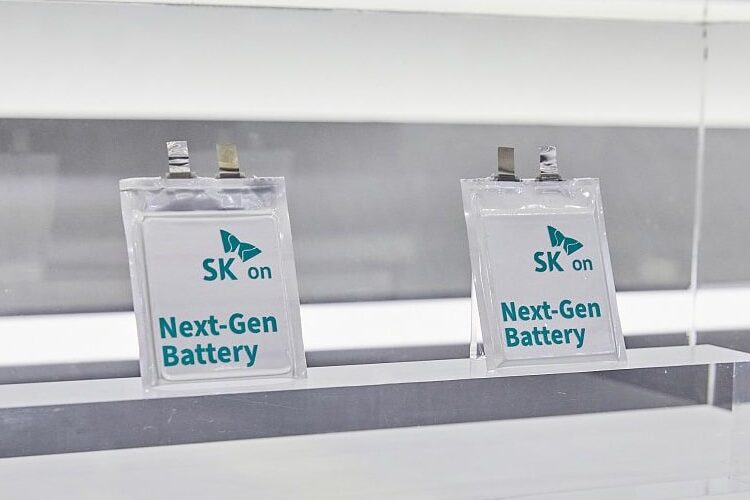SK On reports progress in solid-state batteries
SK On developed a new polymer electrolyte called “SIPE” (single-ion conducting polymer electrolyte) together with a research team from the University of Texas. The battery company believes that the electrolyte “will contribute significantly to improving the performance of solid-state batteries and accelerate the development of solid-state batteries”. The research results were published recently in the Journal of Electrochemical Society.
Polymer electrolytes are considered the next generation of solid-state battery materials with low cost and ease of production. However, they have a lower ionic conductivity compared to oxide and sulphide-based electrolytes, which means that they generally only work at high temperatures of 70 to 80 degrees Celsius. SK On describes overcoming this limitation as one of the biggest challenges in the field of solid-state batteries.
The Koreans have therefore focussed their research on improving the ionic conductivity and lithium ion transfer coefficient – and, according to their own statements, have solved the temperature problem in this way: “Compared to existing polymer electrolytes, SIPE has increased room temperature ionic conductivity by approximately ten times (1.1×10-4S/cm) and the lithium-ion transference number from 0.2 to 0.92, nearly a fivefold increase. These improvements enable operation at room temperature.”
SK On also claims to have found solutions for the typically high capacity loss of polymer electrolytes during HPC charging (due to the low ionic conductivity). The researchers specify that in their own experiments, batteries with SIPE retained 77 per cent of their discharge capacity at high charge and discharge rates (2C) compared to low charge and discharge rates (0.1C). SIPE is also said to have a high mechanical resistance that enables mass production and a high thermal stability that can withstand temperatures of over 250 degrees Celsius.
“Based on the results of this research, we expect to accelerate the development of solid-state batteries applying polymer electrolytes,” said Kim Tae-kyung, head of SK On’s Next Generation Battery R&D Office. “SK On will seize growth opportunities in the next-generation battery field by leveraging our competitive edge in new material technologies.” SPIE could be used in next-generation hybrid solid-state batteries, for example, in which the charging speed and performance at low temperatures should also improve.





0 Comments